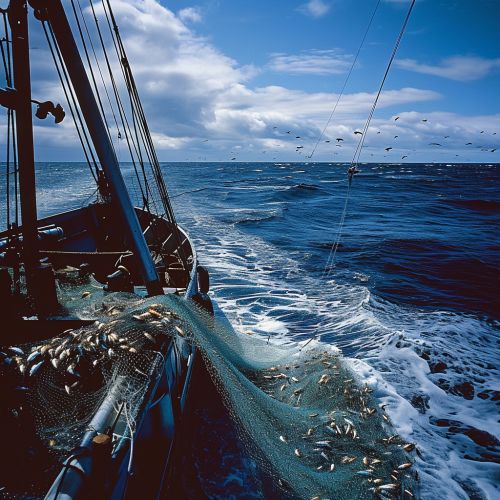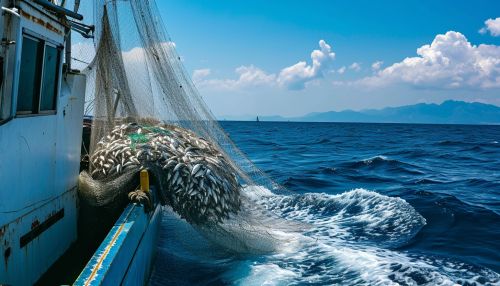Impact of Overfishing on Marine Biodiversity
Introduction
Overfishing is a significant global issue that has a profound impact on marine biodiversity. This practice, which involves catching fish from sea at rates too high for species to reproduce and replenish their populations, is causing a decline in fish populations, disrupting marine food chains, and threatening the health of our oceans. This article delves into the various ways overfishing affects marine biodiversity, the species most at risk, and the potential long-term consequences of this practice.
Understanding Overfishing
Overfishing occurs when more fish are caught than the population can replace through natural reproduction. It is a classic example of the tragedy of the commons, where shared resources are exploited to the point of depletion or damage. Overfishing can lead to a reduction in marine biodiversity, which refers to the variety of life forms within the marine ecosystem. This includes the diversity within species, between species, and the diversity of ecosystems.


Impact on Fish Populations
Overfishing has a direct effect on fish populations worldwide. Many species, particularly those at the top of the food chain, such as the Atlantic bluefin tuna and the Atlantic cod, have seen significant declines due to overfishing. These species play a crucial role in maintaining the balance of marine ecosystems, and their decline can have cascading effects on the entire food chain.
Disruption of Marine Food Chains
The removal of large amounts of fish from the ocean disrupts the marine food web. Predatory fish that feed on smaller fish or plankton are significantly affected by overfishing. With the reduction of their food source, these predators may face starvation and population decline. This can lead to a phenomenon known as trophic cascade, where changes at one level of the food chain cause dramatic shifts in other levels.
Threat to Marine Ecosystems
Overfishing doesn't only affect fish populations and marine food chains; it also poses a significant threat to marine ecosystems. The removal of certain species can lead to the proliferation of others, potentially leading to invasive species dominating certain areas. This can cause a shift in ecosystem dynamics and lead to the loss of biodiversity.
Long-Term Consequences
The long-term consequences of overfishing can be severe. As fish populations decline, the oceans' ability to provide food and livelihoods for human populations is compromised. This is particularly concerning for communities that rely heavily on fishing for their food and income. Additionally, the loss of biodiversity can make ecosystems less resilient to other threats, such as climate change or pollution.
Conclusion
Overfishing is a global issue that requires immediate attention. The impact on marine biodiversity is significant, affecting fish populations, disrupting food chains, and threatening the health of marine ecosystems. The long-term consequences of overfishing can be severe, compromising the oceans' ability to provide food and livelihoods for human populations. It is crucial that sustainable fishing practices are implemented to protect our oceans' health and biodiversity.
